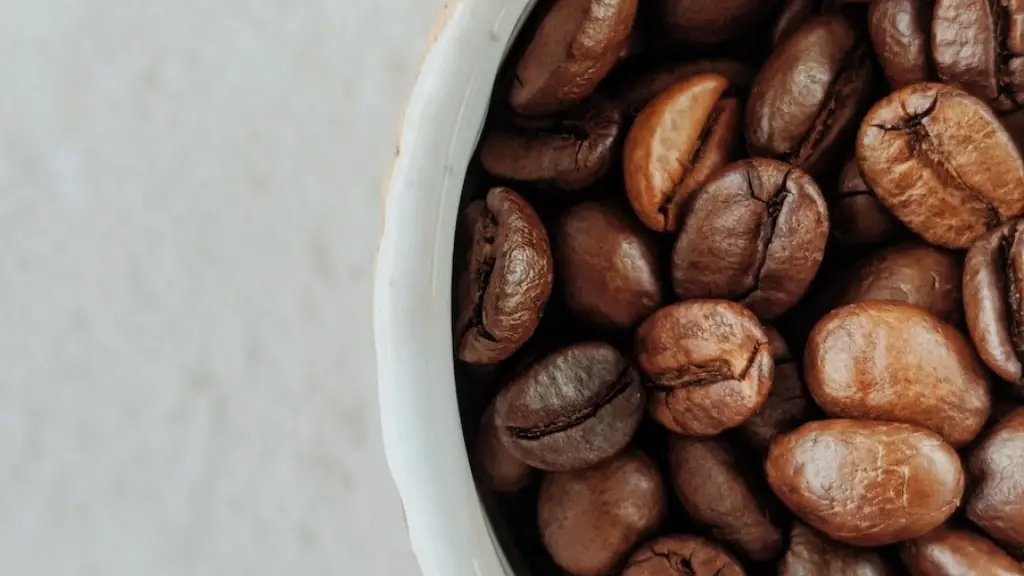Coffee is among one of the most popular drinks in the world, consumed daily by millions of people. It provides a hit of both energy and taste – but could it be causing us some harm? In this article we will explore the connection between coffee and stomach ulcers, a gastric condition which can cause acute discomfort and, in extreme cases, long-term damage.
As with many questions about health, the answer is not so straightforward. The issue is complicated because the connection between coffee and gastritis – a precursor to stomach ulcers – is poorly understood, with conflicting scientific studies. For instance, one study conducted in 2012 examined the effects of coffee on the gastric mucosa, the protective layer inside the stomach which helps control acid. The study observed that coffee had a neutralizing effect on the gastric mucosa, protecting it from damage.
At the same time, other studies have suggested that coffee may increase the risk of developing stomach ulcers. For example, one study in 2011 found that participants who drank 4 or more cups of coffee per day were more likely to suffer from gastritis than those who consumed less. The study also showed that regular coffee intake was associated with increased levels of inflammation and oxidative stress in the stomach, both of which can contribute to ulcer formation.
The research, then, seems to suggest that there is an association between coffee and stomach ulcers, but it is not definitive. It seems safe to assume that the effects of coffee on the gut are complex and multi-factorial, with different individuals experiencing different responses. To avoid the risk of stomach ulcers, it is best to moderate coffee intake and ensure that it is not consumed too close to meals. Additionally, it is important to drink plenty of water and maintain a healthy diet and lifestyle.
So, can drinking coffee cause ulcers? The answer appears to be that, while coffee may be associated with an increased risk of developing stomach ulcers, further research is needed to better understand the effects of coffee on the stomach. In the meantime, for those wishing to drink coffee, it is recommended to do so in moderation and alongside a healthy lifestyle in order to minimise any potential risks.
Coffee and Heartburn
Another area of concern surrounding coffee is its connection to heartburn. Heartburn is a burning sensation felt in the chest, often due to the acid refluxing up from the stomach. It is a common symptom of gastroesophageal reflux disease (GERD), with more than 60 million Americans experiencing it at least once in a month. Coffee, it is believed, may aggravate this condition unsightly.
One study conducted in 2002 examined the effect of coffee on gastroesophageal reflux disease (GERD). The study found that the consumption of coffee resulted in an increase in the levels of acid production, which can lead to heartburn and other digestive disorders. This finding implies that coffee could be contributing to heartburn in those with existing GERD.
At the same time, other studies have suggested that coffee does not aggravate heartburn. One study from 2005 examined the relationship between coffee and gastroesophageal reflux in a group of patients with the disease. The study found no significant differences in the severity of their symptoms when drinking either decaffeinated or caffeinated coffee. This suggests that the caffeine in coffee does not have a negative effect on heartburn.
Overall, it appears that the effects of coffee on heartburn are unclear and depend on the individual. Those with existing GERD may find that coffee aggravates their symptoms, while others may not experience any adverse effects. Moderate coffee intake may be recommended for those with GERD, with drinks such as decaf being particularly beneficial.
Coffee and Acid Indigestion
As well as heartburn, coffee is also linked to acid indigestion. Acid indigestion is a condition characterized by abdominal pain and discomfort, often caused by the stomach’s inability to process acids properly. Several studies have suggested that coffee may worsen acid indigestion, with one study from 2013 showing a significant increase in symptoms in those who drank caffeinated coffee.
At the same time, other studies have suggested that coffee does not cause acid indigestion. A study from 2011 examined the relationship between coffee consumption and symptoms of acid indigestion in a group of healthy participants. The study found that there was no significant difference in the symptoms experienced when the participants drank either regular or decaffeinated coffee.
In conclusion, it appears that the link between coffee and acid indigestion is complex. Some studies have suggested that coffee may worsen symptoms of acid indigestion, while others have found no difference in symptoms between regular and decaffeinated coffee. In any case, it is recommended that those with acid indigestion moderate their coffee intake to minimise the risk of exacerbating the condition.
Coffee and Irritable Bowel Syndrome
Coffee has also been linked to the development of irritable bowel syndrome (IBS). IBS is a common digestive disorder which can cause pain, bloating and constipation. Several studies have suggested that coffee may aggravate these symptoms, particularly in those with existing IBS. For example, one study conducted in 2002 found that participants with IBS experienced an increase in symptoms when drinking caffeinated coffee.
At the same time, other studies have suggested that coffee may not be to blame for IBS symptoms. A study from 2007 observed the effects of coffee on participants with IBS, half of whom drank regular coffee while the other half drank decaffeinated coffee. The study found no difference in their symptoms, suggesting that the caffeine in coffee is not responsible for the discomfort associated with IBS.
Generally speaking, the evidence suggests that for those with existing IBS, caffeinated coffee may worsen their symptoms. It is recommended, therefore, that these individuals limit their coffee intake and, if possible, switch to decaffeinated alternatives to minimise the risk of worsening their symptoms.
Coffee and Gastritis
Finally, coffee is also linked to the development of gastritis, a precondition to stomach ulcers. Gastritis is an inflammation of the stomach lining, caused by a variety of factors, including the consumption of coffee. Several studies have suggested that coffee consumption can lead to an increase in the levels of acid production, which can weaken the protective layer of the stomach and increase the risk of gastritis.
At the same time, other studies have suggested that coffee may not be the only cause of gastritis. A study in 2003 examined the effects of coffee on a group of participants with gastritis. The study found that those who drank caffeinated coffee were more likely to suffer from gastritis than those who drank decaffeinated coffee, suggesting the role of caffeine in its development.
On balance, the scientific evidence surrounding the connection between coffee and gastritis is inconclusive. It appears that, while coffee may be a contributing factor in the development of gastritis, other factors may also play a role. It is therefore recommended that those at risk of developing gastritis minimise their coffee intake, as well as maintain a healthy diet and a lifestyle.




